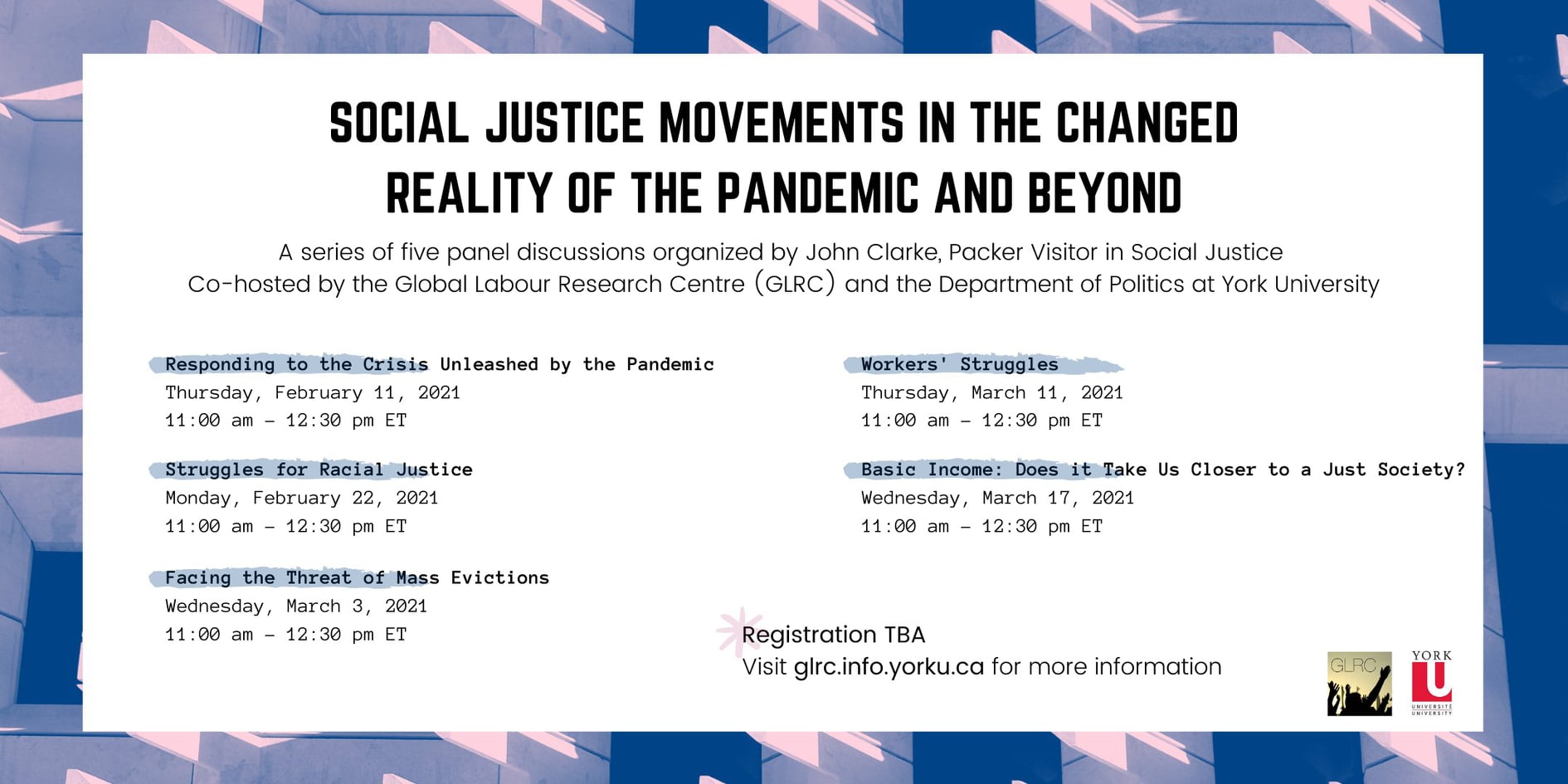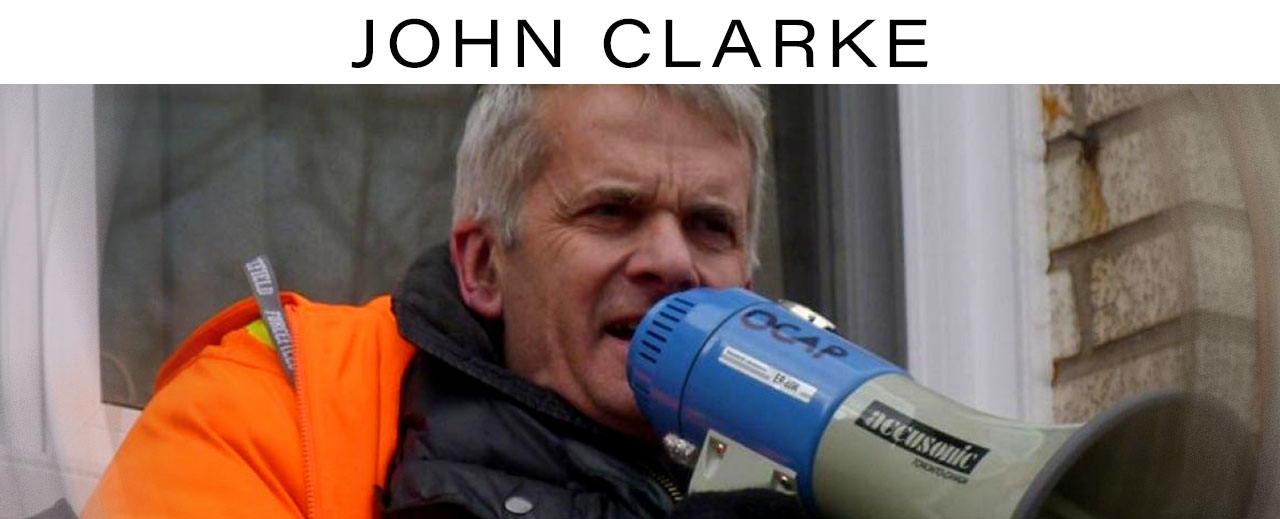
In my capacity as Packer Visitor in Social Justice at Toronto’s York University, I’m working on a series of online panel discussions on ‘Social Justice Movements in the Changed Reality of the Pandemic and Beyond.’ They will run from February 11 to March 17 and will be dedicated to the memory of Leo Panitch. Leo had a huge role in establishing the Packer initiative and played no small role in helping me to become Packer Visitor. I know he would have enthusiastically supported this series and it is only fitting they take place in his honour.
I had been working to ensure that the course I was teaching at York would be taken into communities under attack and facing austerity, poverty and racism but the onset of the pandemic, with its requirements of physical distancing, caused a number of plans to be put on hold. This online series, then, has been created as a way of developing the analysis of the interlocking crises that the pandemic has brought to a head and the massively changed situation this creates for movements of social resistance. It will also be an opportunity to discuss some key movements and struggles that are on the front lines in this situation. The Canadian context will certainly be examined but the global situation will not be neglected. Each session will have an hour taken up with presentations on the issues and half hour for questions and discussion. The areas we will cover will be as follows:
The first session will examine the crisis situation in which we find ourselves, as COVID-19 continues to spread, economies shudder and a climate disaster looms over all of this. It will also look at the challenges social movements face in this situation and how they must respond to them. The panel will include presenters from the US, where an unprecedented social upsurge in the wake of the police murder of George Floyd has unfolded and India, where vast mobilizations of workers and farmers are powerfully challenging the neoliberal order.
The second session will focus on the struggle for racial justice, especially the powerful challenge to racist police brutality that has emerged. There will be a presenter who can look at the movement against police racism in Toronto, one that will deal with the RCMP, as Canada’s colonial police force, and another to look at the incredible developments in the US.
Our third session will deal with the threat of mass evictions that the pandemic crisis has brought with it and the movements that are resisting in the face of it. This is an international phenomenon but we will look at how it is unfolding right in Toronto. A presenter from the Jane Finch community will explain the impacts they are facing, another will discuss the fight against evictions on a city wide basis and a third presenter will deal with the drive to clear out homeless encampments in Toronto. We will consider the need for wider support for the struggle against evictions and broader demands around housing that must be taken up.
Fourthly, some key workers’ struggles will be considered and issues of how unions must respond in the face of the crisis will be taken up. The struggle to rise the minimum wage and advance workers’ rights in Ontario will be discussed, as well as the fight for justice for migrant workers. Other presenters are still being arranged.
The last of the sessions will take up the vital question of basic income. This is more than a minor issue of social policy. There is a major disagreement on the left over this question. While some, like myself, consider basic income a neoliberal trap and a dangerous commodification of social provision, others see it as a measure that would challenge austerity and inequality. With increasing support for basic income, the possibility exists that it could become a key demand of social movements. There will be presentations from both sides and full discussion of this important issue.
The official discourse presents the remarkable year we have gone through as a ‘rough patch,’ caused by an inexplicable global pandemic that temporarily threw everything off balance. This version suggests that a vaccine will soon arrive, the virus will be tamed and everything will return to normal. In this series, a rather different perspective will be advanced that regards the present crisis of capitalism as one that is far deeper and multifaceted than is suggested. The nature and implications of that crisis will be considered and the need for different forms of social action that arise from it will be explored. The analysis that is put forward, however, will be tested against vital struggles that are presently underway.
It is my hope that this online series will reach an international audience of both academics and social movement activists. I also hope that it will contribute significantly to an understanding of the remarkable period we have now entered and the ways in which we need to respond to the crisis it has ushered in. Further information on how to participate in this series will be issued soon with more details on what I’m sure will be an absolutely outstanding group of presenters.
